Previous laureates of the North-South Prize
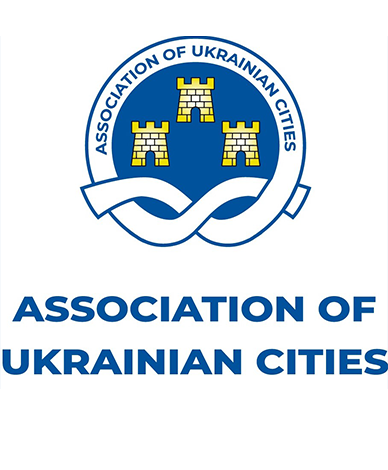
The Association of Ukrainian Cities (AUC)
The Association of Ukrainian Cities was selected by the Jury in recognition of its strong commitment to ensure better integration of Internally Displaced Persons in host communities and to address the socioeconomic challenges that arise in wartime. In addition, the Prize also intends to recognize the Association´s efforts to uphold democratic values by ensuring that laws regulating the functioning of local authorities are fully aligned with the provisions of the European Charter of Local Self-Government.
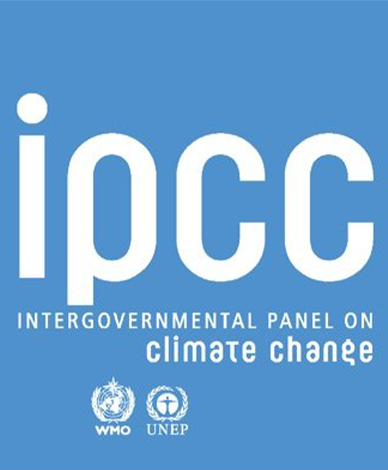
The Intergovernmental Panel on Climate Change (IPCC)
The Intergovernmental Panel on Climate Change (IPCC) was selected by the Jury in recognition of its crucial work in raising awareness about the pressing need to globally act against greenhouse gas emissions to mitigate the effects of climate change that affect all humanity.
References
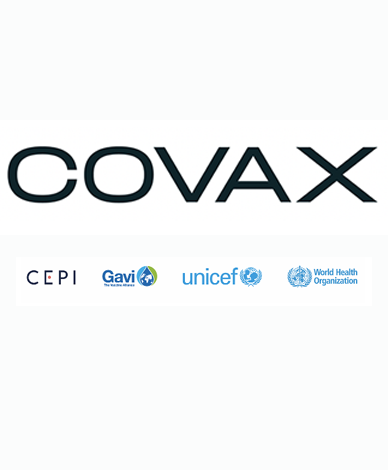
The Covax Mechanism
The Covax Mechanism is selected by the Jury in recognition to the efforts made by this global initiative to ensure that COVID 19 vaccines are available worldwide, including in low-income countries, and ultimately for striving for a more equitable world when it comes to the protection of people’s lives and public health.
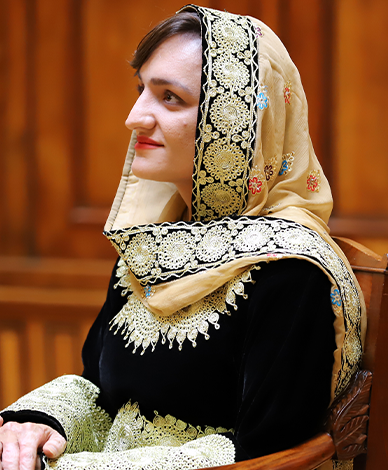
Zarifa Ghafari
The Jury decided to award the Prize to Ms. Zarifa Ghafari, former Mayor of Maidan Shahr, capital city of the Wardak Province in Afghanistan for her courage and strong commitment to defending women’s rights in her home country, as well as internationally.
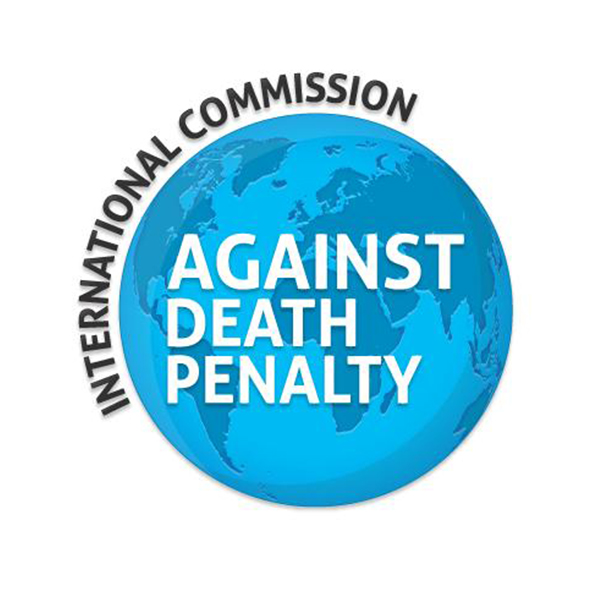
The International Commission against the Death Penalty
ICDP
The Jury acknowledged the unique contribution of the ICDP during its ten years of existence to the global trend against the death penalty and its key role in the international movement that advocates for its abolition.
On the 10th anniversary of the ICDP, the North-South Prize recognizes its contribution, on substance, to the promotion of the most fundamental human right – the right to life; and, on form, to international solidarity and partnership. Twenty-two personalities and twenty-three states from all over the world contribute to the mission of the ICDP with the purpose to act universally for the achievement of this common goal.
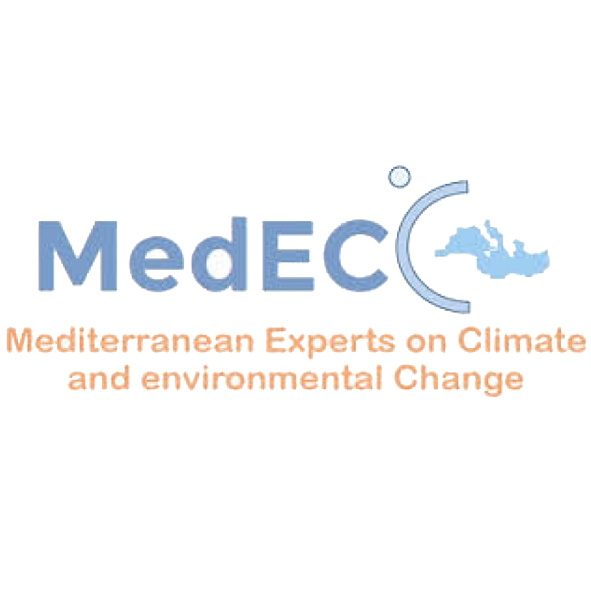
The Network of Mediterranean Experts on Climate and Environmental Change
MedECC
The Jury recognized the work of the MedECC network, composed by more than six hundred scientists from 35 states from the Mediterranean and Europe.
The MedECC network - that elaborated the first-ever scientific assessment on climate and environmental change impact in the Mediterranean basin - constitutes both, a leading example of the potential of collaboration between states and societies to face the challenges of climate change and environmental sustainability, as well as response to the need of scientific and expert cooperation to produce knowledge-based analysis as a sound basis for policy planning. Its work contributes to the promotion of the 1.5 Global Goal of the Paris Agreement in the region. The network also constitutes a concrete example of the vision of the Mediterranean Sea as a shared space of peace, development and human rights, which led to the creation, twenty-five years ago, of the Barcelona Process.

Nabila Hamza
Nabila Hamza (Tunisia) is a sociologist, feminist activist and expert specialized in gender issues, social development and good governance. She is the Team Leader of the EU funded programme “Med Dialogue for Rights and Equality”. She was selected by the Jury for her strong commitment to the protection of human rights and women's rights namely for her contribution to the improvement of Tunisian family law.
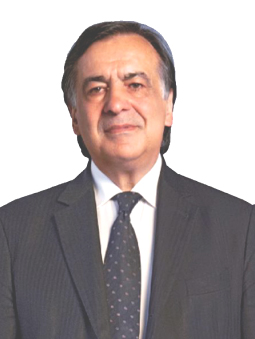
Leoluca Orlando
Leoluca Orlando (Italy) was the Mayor of Palermo. In 2015, he created the "Palermo Charter" to defend the right to international mobility and the "Council of Cultures", an advisory body made up of members elected by migrants to give them a voice in politics. The Prize was awarded to him in recognition of his efforts to support the integration of migrants and the reinforcement of human rights and rule of law at the local level.
References
Leoluca Orlando, Laureate - in english
Nabila Hamza, Laureate - in french
Pedro Carlos Bacelar de Vasconcelos, President of the Portuguese delegation to the Parliamentary Assembly of the Council of Europe (PACE) - in portuguese
Secretary General, Council of Europe - in english
Rik Daems, President of the Parliamentary Assembly of the Council of Europe - in english
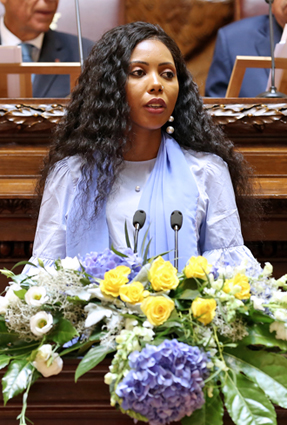
Jaha Mapenzi Dukureh
Founder and CEO of the Non-Governmental organisation “Safe Hands for Girls”
Jaha Mapenzi Dukureh is the founder and CEO of Safe Hands for Girls, an NGO that works in the Gambia, Sierra Leone and the USA. Since 2013, Safe Hands for Girls has advocated for an end to female genital mutilation (FGM) and child, early and forced marriage (CEFM), and works at grassroots level to change attitudes, mobilize opposition to both practices and provide support to the victims.
The work Jaha led with Safe Hands for Girls was instrumental in convincing President Obama’s administration to investigate the prevalence and profile of FGM in the USA, and the subsequent Summit to End FGM at the United States Institute of Peace. Safe Hands for Girls’ advocacy was also a key contributing factor in the Gambian government’s decision to outlaw FGM in 2016.
Jaha Mapenzi Dukureh was appointed UN Women Ambassador for Africa in February 2018. In this role, Jaha supports UN Women’s advocacy to end FGM and child marriage in Africa, with a focus on mobilizing youth.
Jaha Mapenzi Dukureh is particularly known for her work with religious leaders, having earned respect through her informed and courageous advocacy, based on the premise that FGM has no basis in any of the major religions.
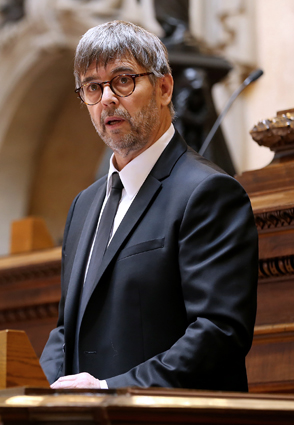
Damien Carême
Former mayor of Grande-Synthe (France)
Damien Carême is a French politician. He was the Mayor of Grande-Synthe, in the outskirts of Dunkirk (France) from 2001 until 2019. During his mandates, he implemented social ecology namely through the introduction of 100% organic and local meals in canteens, communal gardens, free public transport, social minimum income for inhabitants below the poverty line. In 2010, Grande-Synthe was elected “capital of biodiversity” and received the "Fleur d'Or", "Ville Zéro Phyto", and the "Citizen Energy” awards.
Mr. Carême also is known as the “mayor of migrants”. In 2015, he led the construction of a humanitarian camp which provides shelter for thousands of migrants whose freedom of movement was suspended at the French-UK border. The camp, built without any financial support from the State and in compliance with the norms of the United Nations, has the capacity to accommodate 2,500 people.
In 2016, he was a finalist of the "Best Mayor of the World" competition, an honorary title awarded by the City Mayors Foundation (France). He was also President of the “French cities and suburbs mayors association” between 2014 and 2015.
References
Damien Carême, Laureate, speech - in french
Ana Catarina Mendes, Head of the Portuguese Delegation to the PACE, speech - in portuguese
President of the Portuguese Republic, speech - in portuguese
Gabriella Battaini-Dragoni, Deputy Secretary General of the Council of Europe speech - in english
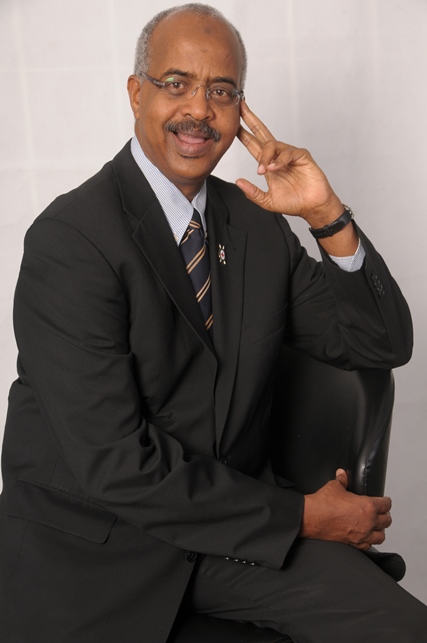
Abbas Gullet
Secretary General of the Kenya Red Cross Society.
Dr Abbas Gullet is the founder and Chairman of the Boma Groups of hotels in Nairobi, Eldoret and Nyeri which are fully owned by the Kenya Red Cross Society. Under his leadership, the Kenya Red Cross Society also founded the Emergency Medical Services (E PLUS) which has over 100 Ambulances - the largest fleet of Critical Care Ambulances in Kenya and Sub-Sahara Africa.
Dr. Gullet also helped established the NEPARC (New Partnership of African Red Cross & Red Crescent Societies) in Johannesburg - South Africa, a partnership aimed at African National Societies taking responsibility for their own developments.
Of all the organisations that make up East Africa’s most recognisable and respected names, called the Superbrands, the Kenya Red Cross is the only non-commercial entity, and it has received this recognition 3 years in a row. It is a symbol of hope in the direst situations, a comforting hand in times of disaster and the steadfast guiding light in moments of panic and confusion.
Dr. Gullet defied skeptics to rebuild a strong Kenyan National Society. He continues to lobby the government and has won tremendous support as a result. Dr. Gullet is involved in rigorous fundraising to improve the Society’s financial base and brings a business approach to his work. Kenya Red Cross Society has set its sights on being self-sustaining and able to foot its core.
The Kenya Red Cross also prides itself in having a large local logistics capacity. Around the world, the Kenya Red Cross Society is recognised as one of the best performing National Red Cross societies, but it is in Africa where it is a living example of what other Societies can do.
The lesson Dr. Gullet takes away from his work is how weak and vulnerable human beings are, and the fact that they should strive to co-exist and tolerate one another. Dr. Gullet’s dream for the continent is still alive and its realisation on course. Cooperation and coordination of relief work in the Region now brings efficiency and speed to disaster response and programme implementation.
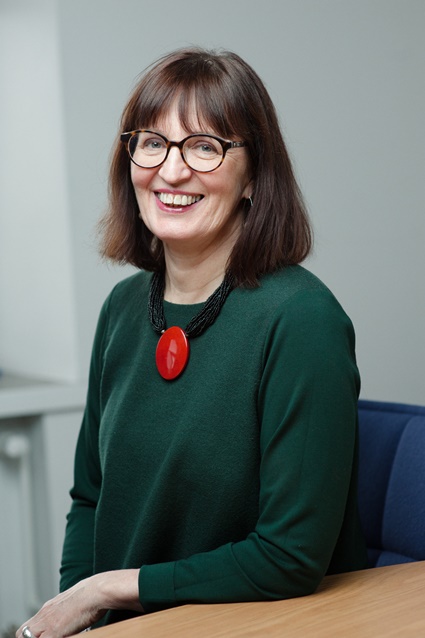
Kristiina Kumpula
Secretary General of the Finnish Red Cross.
Ms Kristina Kumpula studied administration and economics at the University of Tampere.
After her studies, in 1987, she started her career as Secretary for International Education at the International organisation where she has held several positions in the field of Human Rights. In 1998, she was part of a fact finding team of the Ministry of Foreign Affairs for Human Rights in Uganda.
Ms Kumpula has admirably led the Finnish Red Cross domestically, addressing social, health, and migration programming in Finland, among other key activities, and internationally as a strong supporter of sister National Societies around the world, particularly in East Africa.
Ms Kumpula has also been active working with the international components of the Movement, and is currently serving as Chair of the International Federation of Red Cross and Red Crescent Societies Constitutional Review Advisory Group.
References
Ms Kristiina Kumpula, Laureate - in english
Dr Abbas Gullet, Laureate - in english
Ms Gabriella Battaini-Dragoni, Depeuty Secretary General of the Council of Europe - in english
Mr Javier Gil-Catalyna, Chair of the Executive Committee of the North South Centre - in english
Ms Ana Catarina Mendes, President of the Portuguese delegation to the Parliamentary Assembly of the Council of Europe (PACE) - in portuguese
Mr Jorge Lacão, Vice-President of the Assembly of the Republic (Portuguese Parliament) - in portuguese
Prof Marcelo Rebelo de Sousa, President of the Republic - in portuguese
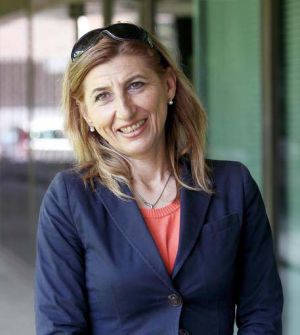
Giuseppina Nicolini
Former mayor of the Italian municipality of Lampedusa and Linosa.
Maria Giuseppina Nicolini, has been awarded for her commitment to the reception of migrants and to the defence of refugees’ rights, by welcoming and sheltering them and by through lobbying the Italian and the EU authorities to provide appropriate support and assistance.
She was elected mayor of her home town in 2012, just before the definitive major outbreak of the migrant crisis in the Mediterranean. During her administration, the island has become one of the most efficient migrant ports in Europe. Therefore, the UNHCR refers to a the ‘Lampedusa model’ and Ms. Nicolini has been praised by human rights organisations, and even by the Pope himself, for her humanitarian approach.
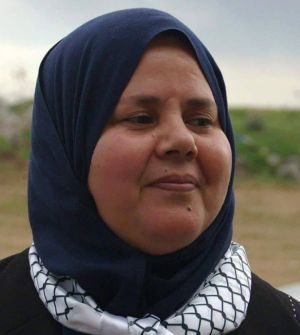
Mbarka Brahmi
Tunisian Member of Parliament
Ms. Brahmi is the founder of the ‘Centre Brahmi pour la paix et la solidarité’. She has been awarded for her direct engagement in the Tunisian democratic process and herin the fight for social justice. and in the Tunisian democratic process.
Ms. Brahmi started her political activity in the 80’s, during the university years in Tunis, where she was studying law and political science. She joined the opposition movement ‘Étudiants Arabes Unionistes Progressistes’, banned by the regime.
After years of commitment to women’s rights and following the outbreak of the Arab Spring, she became honorary President of the ‘Courant Populaire’ Party. In 2014, she was elected Member of the Tunisian Parliament and one year later, she took up the Presidency of the Health and Social Affairs Committee.
References


He led positive socio-economic reforms, culminating with the adoption of the 1990 constitution that led Mozambique to the multi-party system and to an open market. Chissano also led successful negotiations with former rebels, ending 16 years of a destabilizing war in 1992. In 1994, he won the first multiparty elections in the history of his country, and was re-elected in 1999. Currently, he is the Chairperson of the Joaquim Chissano Foundation that aims at peace promotion, social and economic development and culture and of the Africa Forum of Former African Heads of State and Government. He has received the highest awards from many countries and has received several prizes, including the Chatham House in 2006 and the inaugural Mo Ibrahim Prize for Achievement in African Leadership in 2007.
















In April 2000, he issued the Millennium Report, entitled "We the Peoples: The Role of the United Nations in the 21st Century" forming the basis of the Millennium Declaration. The Secretary General and the United Nations both received the Nobel Peace Prize in 2001.



























